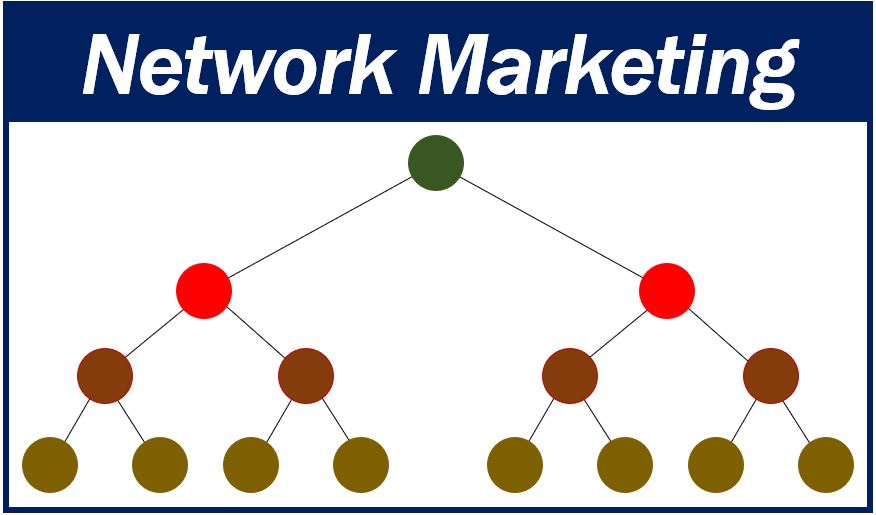Network marketing is a direct selling business model in which salespeople work independently promoting products or services. The salespeople or agents work independently. Whoever recruited them encourages them to recruit and train more agents. They then encourage the agents they recruited to do the same, and so on.
We also refer to this model as MLM (multilevel marketing), referral marketing, and cellular marketing.

Network marketing is a huge business, with global sales worth many hundreds of billions of dollars each year. Some countries restrict or ban this type of setup; usually after a case of massive fraud hits the news.
Dictionary.com has the following definition of the term:
“Direct selling method in which independent-agents serve as distributors of goods and services and are encouraged to build and manage their own sales force by recruiting and training other independent agents.”
“In this method, commission is earned on the agent’s own sales revenue, as well as on the sales revenue of the sales-force recruited by the agent and his or her recruits.”
What is direct selling?
Direct selling means selling goods or services directly to consumers either at their homes or where they work. The sale does not occur in a retail environment, i.e., it doesn’t happen in a shop.
You cannot usually find direct-sales products in shops, supermarkets, or department stores. The only way to buy them is by contacting an agent directly.
Earning commission
In a network marketing business model, agents earn commission on their own sales and also all sales of the agents under them. The agents under them are those they recruited and trained, plus all the agents under the ones those people recruited, and so on.
We refer to the agents that are under somebody as that person’s downline members.
Let’s suppose Sally is an agent who recruited and trained ten new agents. They recruited ten each, and those new agents also recruited ten each. Sally would have 10 x 10 x 10 = 1,000 people selling under her, i.e., 1,000 downline members. Therefore, she would earn commission from her own sales plus the sales of 1,000 agents.
In a network marketing set up, the more agents you have under you, the more you earn. Many individuals have become multimillionaires working in network marketing companies.
Network marketing vs pyramid schemes
Some people use the two terms – network marketing and pyramid schemes – interchangeably. However, their meanings are quite different.
Pyramid schemes
Fraudsters set up and run pyramid schemes, i.e., they are scams. A scam is a scheme that tricks people out of their money.
In a pyramid scheme, nothing is sold, even though those who run it say otherwise. Those in the scheme try to make money purely by recruiting new agents and getting them to do the same.
Network marketing
A network marketing model is a legal business which sells products or services.
According to the Office of the Attorney General of South Dakota in the United States:
“Pyramid Schemes are, however, fraudulent schemes, disguised as an MLM strategy. The difference between a pyramid scheme and a lawful MLM program is that there is no real product that is sold in a pyramid scheme. Participants attempt to make money solely by recruiting new participants into the program.”
“The hallmark of these schemes is the promise of sky-high returns in a short period of time for doing nothing other than handing over your money and getting others to do the same.”
